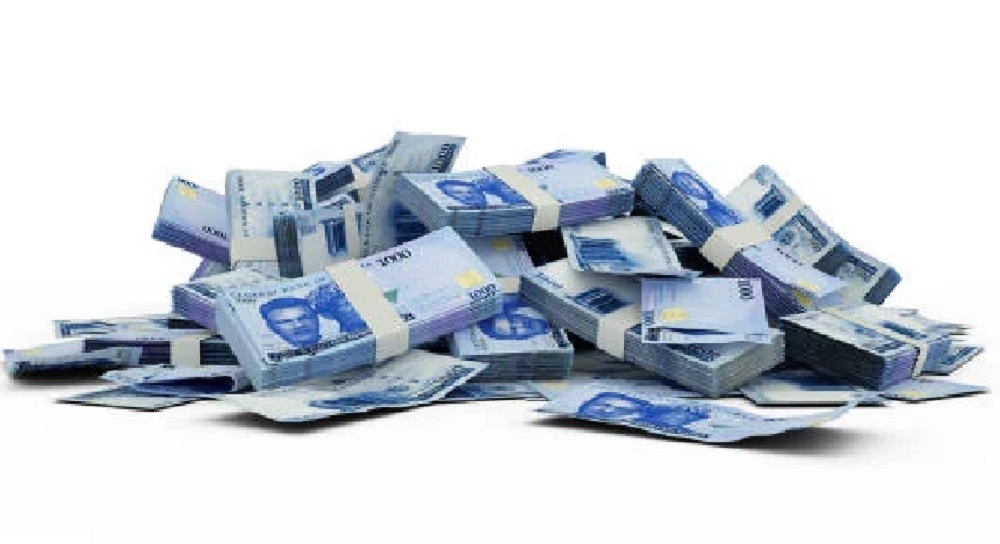Economy
SEC unveils frame work for banks’ recapitalisation

The Securities and Exchange Commission (SEC) has released a framework designed to support the Central Bank of Nigeria’s (CBN) bank recapitalization programme.
This framework, published on the SEC website yesterday, aims to ensure a smooth, transparent, and efficient capital raising process for banks and holding companies participating in the programme.
The framework serves as a roadmap for banks and market participants navigating the recapitalization programme. “This framework would help to ensure that the capital raising process is conducted efficiently, transparently, and in a manner that protects the interests of all stakeholders,” stated the SEC.
It outlines the specific guidelines and procedures that banks must adhere to when raising capital through various methods, including rights offerings, private placements, and other approved options during the 2024-2026 programme period.
The SEC acknowledged the rationale behind the CBN’s directive, highlighting the need to strengthen banks’ asset base and support economic growth in line with the government’s ambitious target of achieving a $1 trillion economy by 2030. The framework in turn recognizes the capital market’s crucial role in facilitating this program by enabling banks to access the necessary funds and explore various business combinations.
“As the regulatory institution mandated to regulate and develop the Nigerian capital market,” the SEC noted, “it has the responsibility to ensure a smooth, transparent, and efficient capital raise process by the banks.” The framework establishes clear guidelines for banks to follow, promoting transparency and protecting the interests of all involved parties.
The SEC has outlined a streamlined process for application submission. Applications and supporting documents must be filed electronically via the dedicated email address, [email protected]. The Commission will review the submitted materials and electronically communicate any identified deficiencies to the applicants.
Applicants are expected to address these deficiencies promptly to avoid delays in the approval process. Timely completion of the application process is crucial for banks seeking to raise capital within the designated timeframe.
The framework also outlines the consequences for incomplete applications. “Where an application is returned for being incomplete – a penalty of N1,000,000 and re-filing fee of N100,000 shall apply,” states the SEC. These penalties are designed to incentivize banks to submit complete and accurate information from the outset.
The SEC through the guidelines encourages banks and stakeholders to reach out for any clarifications or inquiries. A dedicated email address, [email protected], allows for open communication and ensures that banks can navigate the process efficiently.
The Capital Market regulator further clarified that the new framework builds upon existing rules and regulations. It should be “read in conjunction with the relevant provisions of the Investment and Securities Act, 2007 and the Commission’s Rules and Regulations.”
Furthermore, the SEC reserves the right to request additional information as deemed necessary. However, the framework also streamlines the process by allowing previously submitted documents (e.g., Memoranda and Articles of Association) to be referenced in subsequent transactions, provided no changes have been made.
The SEC framework is a direct response to the CBN’s recent directive for banks to bolster their capital base. The CBN has established new minimum capital requirements, with international banks needing to raise their capital base to N500 billion, national banks to N200 billion, and regional banks to N50 billion.
The framework provides a clear roadmap for banks and market participants navigating the CBN’s recapitalization program. With a focus on transparency, efficiency, and adherence to regulations, this framework aims to ensure the program’s success in strengthening Nigeria’s banking sector and supporting the nation’s economic growth aspirations.
Economy
Stock Market Surges: N228bn Gain Sets the Tone for a Strong Trading to Week

The Nigerian stock market opened the week on a bullish note on Monday, gaining N228 billion on the Nigerian Exchange Ltd.
Market capitalisation rose by N228 billion or 0.34 per cent and closed at N66.693 trillion compared to Friday’s figure of N66.465 trillion.
Similarly, the All-Share Index (ASI) climbed by 363.57 points or 0.34 per cent, reaching 106,116.18 from 105,752.61 recorded earlier.
The Nigerian stock market opened the week on a bullish note on Monday, gaining N228 billion on the Nigerian Exchange Ltd.
Market capitalisation rose by N228 billion or 0.34 per cent and closed at N66.693 trillion compared to Friday’s figure of N66.465 trillion.
Similarly, the All-Share Index (ASI) climbed by 363.57 points or 0.34 per cent, reaching 106,116.18 from 105,752.61 recorded earlier.
The positive trend was driven by strong buying interest in medium and large-cap stocks including International Breweries, Legend Internet Plc, Cadbury Nigeria, Fidson and more.
In spite of the upward trend, the market breadth closed positively, with 47 gainers and 16 losers.
International Breweries led the gainers’ chart, rising by 10 per cent to close at N8.47 per share.
Legend Internet Plc followed, appreciating by 9.97 per cent to settle at N7.50 per share.
Cadbury Nigeria gained by 9.96 per cent, and end the day at N29.25, while Fidson rose by 9.95 per cent to close at N20.45 per share.
Eterna also advanced by 9.90 per cent to close at N43.85 per share.
On the losers’ chart, Livestock Feeds dropped by 10 per cent, closing at N8.55 per share.
Aradel Holdings declined by 9.86 per cent to end the session at N448.00 per share
Tripple Gee fell by 9.60 per cent to close at N1.79, while John Holt Plc shed 7.94 per cent to close at N5.80 per share.
Linkage Assurance lost by 6.15 per cent, and finished the day at N1.22 per share.
A total of 500.59 million shares worth N12.110 billion were traded in 17,637 transactions.
This is compared to Friday’s 428.08 million shares worth N20.174 billion, exchanged across 14,284 transactions.
Access Corporation led the activity chart with 60.867 million shares traded, which was worth N1.45 billion.
Fidelity Bank followed with 56.105 million shares valued at N1.13 billion while the United Bank for Africa sold 34.53 million shares worth N1.174 billion.
Guarantee Trust Holding Company transacted 33.49 million shares valued at N2.181 billion and the Nigerian Breweries traded 28.336 million shares, amounting to N1.15 billion.
Economy
OPay Scam Alerts advises Nigerians to remain vigilant against dubious activities

You are just seconds away from sending money – the offer sounds perfect, the seller seems trustworthy and the clock is ticking.
But just before you hit send, one of Nigeria’s leading financial institutions, OPay flashes a critical warning: “Caution – this account has been linked to suspicious activity.”
In that moment, the rush fades, your instincts kick in, and you realise you were on the brink of falling for a scam. One smart alert, one timely pause — and your hard-earned money stays exactly where it should: safe.
This is the power behind OPay’s multi-layered scam alert system — an Artificial Intelligence (AI)-driven, real-time defense network designed to detect and stop fraudulent transactions before they happen.
At the heart of it is a machine learning engine trained on thousands of scam patterns, user reports, flagged accounts, and unusual transaction behaviors. But OPay’s approach goes far beyond a single alert.
How OPay’s scam alert ecosystem works
Abnormal Transaction Pop-Up Reminders
When suspicious behavior is detected, OPay immediately interrupts the flow with a clear, targeted pop-up message. Every day, over 60,000 users receive these urgent fraud warnings — and thanks to that, 30,000 risky transactions are stopped in their tracks.
Intelligent Outbound Call Reminders
For higher-risk transactions, OPay activates a multi-channel response, sending warnings via SMS, email, app notifications, and even escalating to customer service calls. This proactive layer reaches more than 10,000 users daily, discouraging over 8,000 fraudulent transactions.
Interactive Q&A Verification
In cases where more context is needed, users are engaged with real-time Question & Answer (Q&A) prompts to understand the purpose of their transaction. If red flags are confirmed, the system presents a tailored warning or ends the transaction flow altogether. This feature alone helps deter over 46,000 scam attempts daily from the 50,000+ users who interact with it.
Together, these layers form a real-time scam detection and prevention engine that evolves with every user interaction. OPay’s system doesn’t just warn — it learns and adapts, constantly improving its accuracy and response time.
Many users don’t even know they’re in danger until OPay steps in. As one X user, @JAHS, shared: “OPay alerted me that I might be sending money to a scammer when I wanted to patronize an IG vendor. Stopped the transaction ASAP.”
These interventions are happening silently, daily – often before the user even suspects something is wrong.
OPay’s scam alert system is part of a broader philosophy: security is not just about technology – it’s about trust. From scam alerts to Face ID transaction verification, USSD instant account locking, the Large Transaction Shield, and automated callback alerts, every tool is designed to protect users in the moments they can’t predict.
As scams get more sophisticated, the future of financial safety depends on real-time prevention. And OPay isn’t waiting for fraud to happen — it’s stopping it in its tracks. Sometimes, the smartest financial decision you make… is the one OPay helped you avoid.
Economy
States face allocation cuts as agency demands N100bn monthly

The monthly statutory allocations to state governments from the federation account may decline in the coming months following an official request by the Nigeria Sovereign Investment Authority to boost the nation’s residual funds with the support of N100bn monthly.
The request, which was presented by the Managing Director and Chief Executive Officer of NSIA, Aminu Umar-Sadiq, is aimed at unlocking large-scale investments to drive Nigeria’s economic growth.
He made the request at the March revenue-sharing meeting of the Federation Account Allocation Committee held between April 14 and 15, 2025. Our correspondent obtained a copy of his presentation during the meeting on Friday.
Umar-Sadiq appealed to the committee, which includes state commissioners of finance, to consider and approve the request, with funding proposed to commence from the March FAAC allocation.
The presentation was titled, “Activating Residual Funding for the Nigeria Sovereign Investment Authority – Unlocking Opportunities for Large-Scale Investments to Drive Nigeria’s Economic Growth.”
According to the document, the NSIA is requesting a structured monthly disbursement of N100bn from Residual Funds—revenues in the Federation Account beyond projected hydrocarbon income—to establish a Naira-based investible capital pool.
The move, the authority says, will enhance its capacity to finance critical domestic infrastructure projects.
The MD said, “The funding would position the authority as a leading sovereign wealth fund globally, promoting responsible and strategic investments for Nigeria’s economic development and enhancing its threefold mandate to build a savings base for the country, enhance the development of infrastructure, and provide stabilisation support.”
He explained that residual funds are a legitimate source of funds transferred to the authority, provided that the derivation portion of the revenue allocation formula shall not be included as part of this funding.
-

 Opinion21 hours ago
Opinion21 hours agoTHOUGHTS ON CONSTITUENTS DEVELOPMENT IN OBIO-AKPOR
-

 News16 hours ago
News16 hours agoJust in: Popular Nigerian billionaire, E-Money nabbed by EFCC
-

 News17 hours ago
News17 hours agoKing Sunny Ade’s family opens up over his whereabouts after daughter’s alarm
-

 Politics13 hours ago
Politics13 hours agoJust in: Ex- Gov Okowa accepts betraying Southern Nigeria, laments running with Atiku
-

 News17 hours ago
News17 hours agoEx-DIG,Olofu debunks online newspaper report, says ” I retired from NPF meritously after 35yrs service
-

 News13 hours ago
News13 hours agoBoko Haram Kill Mourners, Kidnap Others In Borno
-

 News12 hours ago
News12 hours agoDeputy Speaker Leads Defection of PDP Stalwart Chris Igwe, 13,000 Followers to APC In Abia
-

 News13 hours ago
News13 hours agoSpeaker Abbas Raises Alarm on Workplace Safety in Nigeria





